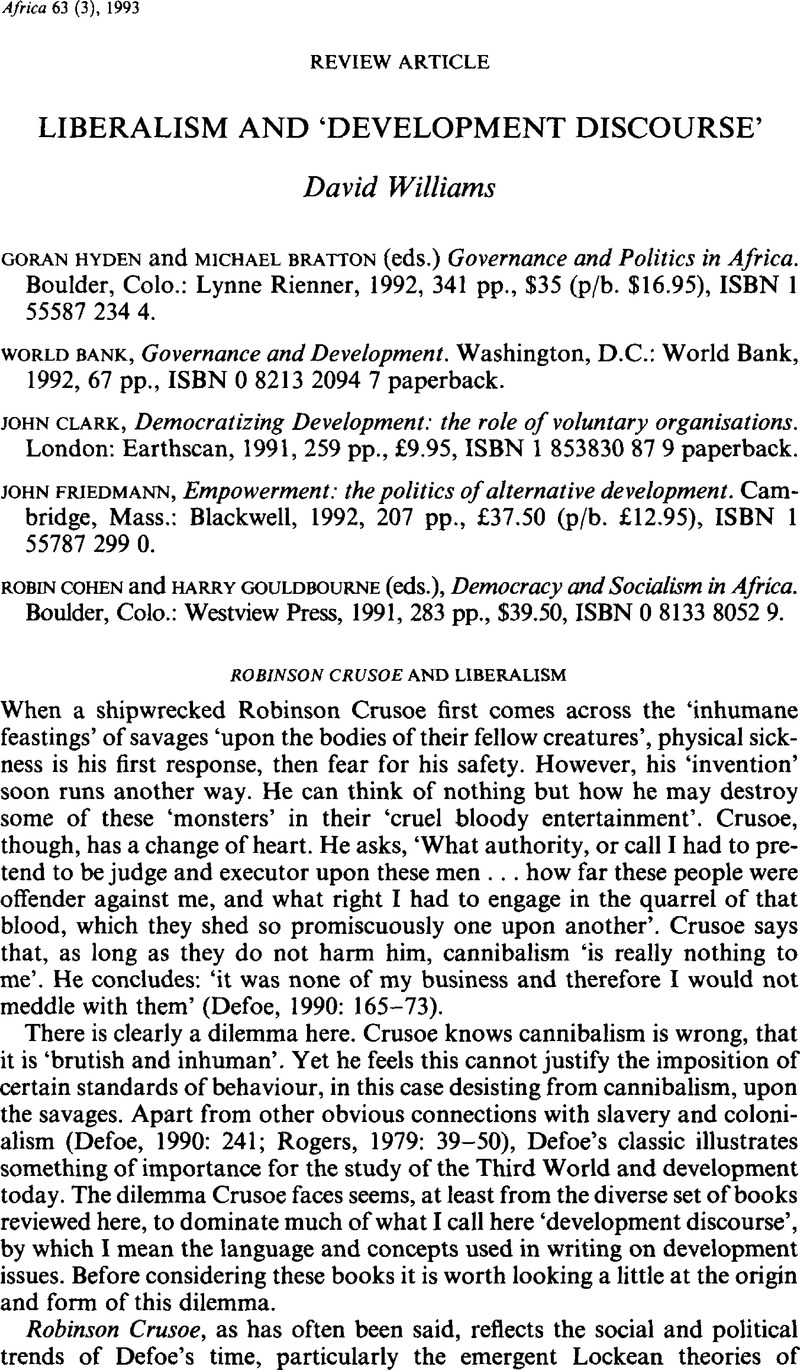Crossref Citations
This article has been cited by the following publications. This list is generated based on data provided by Crossref.
Kriger, Norma J.
2003.
Guerrilla Veterans in Post-war Zimbabwe.
Kelsall, Tim
2004.
Bringing the Self Back In: Politics and Accountability in Africa.
Cadernos de Estudos Africanos,
p.
133.
Kaag, Mayke
2008.
Transnational Islamic NGOs in Chad: Islamic Solidarity in the Age of Neoliberalism.
Africa Today,
Vol. 54,
Issue. 3,
p.
2.
GALLAGHER, JULIA
2011.
Ruthless player or development partner? Britain's ambiguous reaction to China in Africa.
Review of International Studies,
Vol. 37,
Issue. 5,
p.
2293.
Gallagher, Julia
2014.
Chopping the world into bits: Africa, the World Bank, and the good governance norm.
International Theory,
Vol. 6,
Issue. 2,
p.
332.



